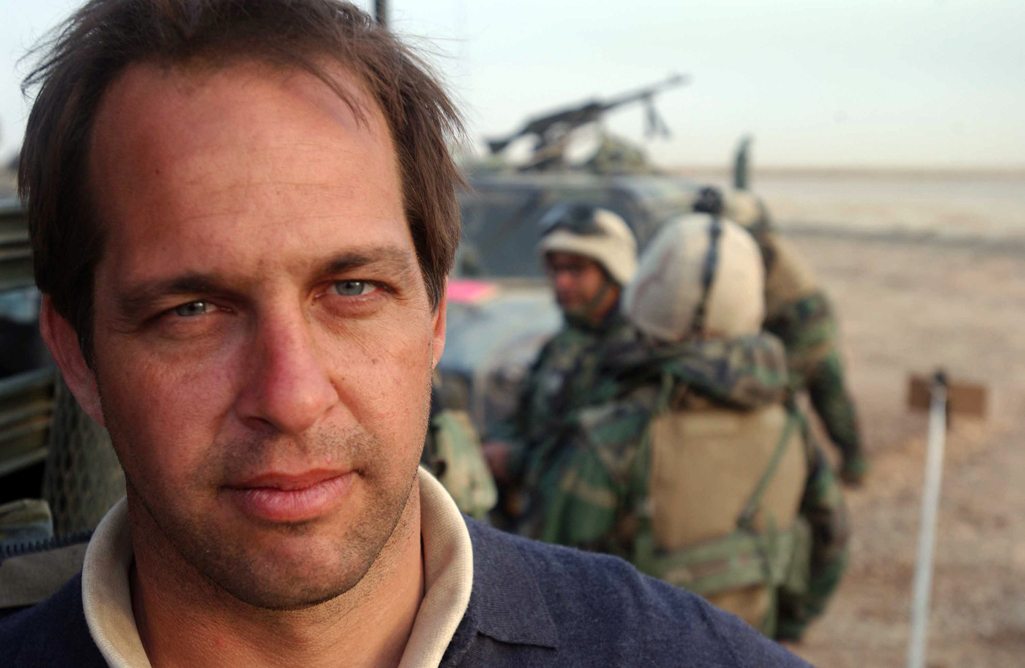
Fallout: In the Aftermath of War, a yearlong series presented by UC Santa Barbara's Interdisciplinary Humanities Center, continues winter quarter with a variety of events, including lectures, panel discussions, and theater performances, that examine war's impact on individuals, cultures, institutions, and societies. All events are free and open to the public.
The first event of the quarter is a talk by Dexter Filkins, a staff writer for The New Yorker and author of the 2008 bestseller "The Forever War." He will speak at 8 p.m. on Wednesday, January 16, in Campbell Hall. Filkins was among a team of reporters from The New York Times who won a Pulitzer Prize in 2009 for their dispatches from Pakistan and Afghanistan.
On Thursday, January 24, Martha Bragin will speak on "Knowing Terrible Things: Thinking the Unthinkable in Time of War." A consultant to governments and international organizations, Bragin advises on demilitarization and reintegration of soldiers following war, with special attention to women and children. Her talk will begin at 4 p.m. in the Miller McCune Conference Room, 6020 Humanities and Social Sciences Building.
A faculty panel at 4 p.m. on Tuesday, January 29, will focus on the religious aspects of recent wars and their aftermath. UCSB professors Juan Campo, Richard Hecht, Kathleen Moore, and Salim Yaqub will discuss Islamic politics and movement, the rise of Iran as a major player in both arenas, and the fate of Iraq's Christians. Wade Clark Roof, the J.F. Rowny Professor of Religion and Society, will moderate.
On Wednesday and Thursday, January 30 and 31, the social-impact acting company Outside the Wire will present "Theater of War," staged readings of selected scenes from Sophocles' "Ajax." The performances will begin at 7 p.m. on Wednesday, January 30, at the Marjorie Luke Theatre, 721 E. Cota St. in Santa Barbara; and at 4 p.m. on Thursday, January 31, in UCSB's Hatlen Theater.
Performed by professional actors Keith David, Tate Ellington, April Grace, and Brian O'Byrne, the readings will be followed by panel discussions with local veterans and mental health professionals. The performances are co-sponsored by the Walter H. Capps Center for the Study of Ethics, Religion, and Public Life, and the UCSB Department of Theater and Dance.
Outside the Wire uses theater and other media to address important public health and social issues, such as combat-related psychology injury. To date, over 200 performances have been presented to military and civilian audiences throughout the United States, Europe, and Japan.
Other events in the Fallout series include talks by John W.I. Lee and Wolf Kittler, UCSB professors of history and of German, Slavic & Semitic studies, respectively; Wafaa Bilal, an Iraqi-born artist; Jonathan Shay, a clinical psychologist and the author of "Achilles in Vietnam: Combat Trauma and the Undoing of Character" and "Odysseus in America: Combat Trauma and the Trials of Homecoming"; Laura Browder, author of "When Janey Comes Marching Home: Stories of American Women at War"; Wali Ahmadi, author of "Modern Persian Literature in Afghanistan"; and Nina Berman, a documentary photographer and author of the monographs "Purple Hearts –– Back From Iraq" and "Homeland."
In addition, a symposium featuring scholars from UCSB, the University of Victoria, and CODEPINK, a women-initiated grassroots peace and social justice movement, will examine "Life In the Age of Drones."
A second symposium with UCSB sociology professor Lisa Hajjar and Joshua Phillips, author of "None of Us Were Like This Before," will focus on the legacy of Abu Ghraib. Hajjar will discuss the significance of torture from the perspective of human rights, and Phillips will address the damaging legacy of torture borne by everyone involved –– the detainees, the American soldiers, and the citizens of the United States.
The series will culminate in a two-day, spring-quarter conference titled "Narrative-Making in the Aftermath of War." Participants will study the ways in which the writing of narratives helps people impacted by war bring order to their memories and process their emotions.
More information about the series, including a complete schedule of events, can be found at www.ihc.ucsb.edu. Questions can be directed to Emily Zinn at ezinn@ihc.ucsb.edu or (805) 893-3137.
Related Links



